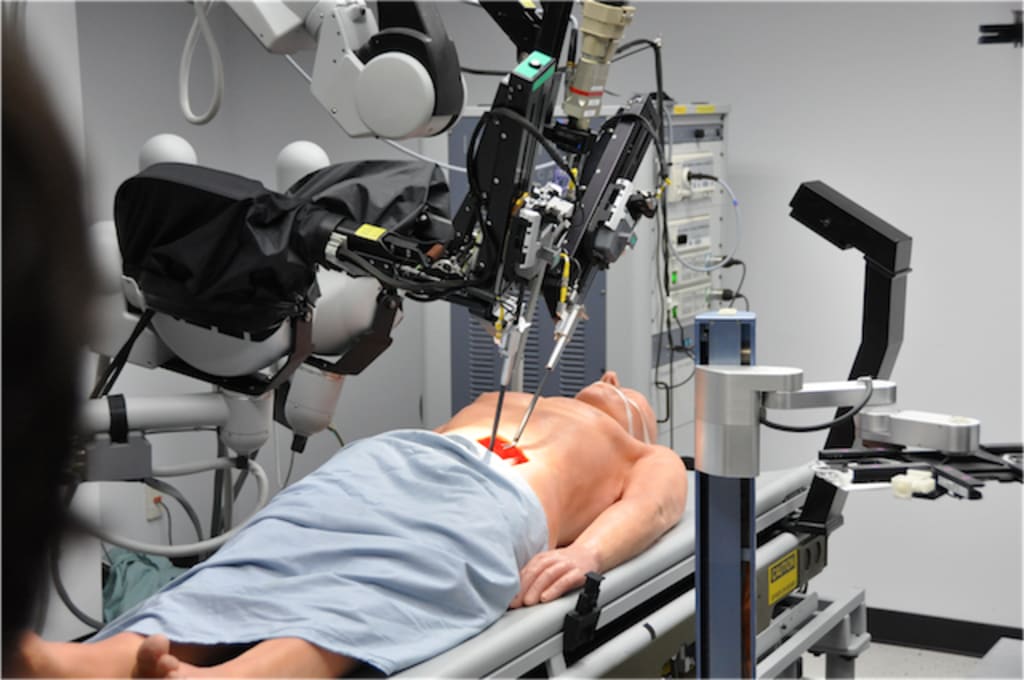The Future of Artificial Intelligence in Healthcare
How AI is revolutionizing the medical industry

Artificial Intelligence (AI) has been gaining significant traction in healthcare over the past few years. The application of AI in healthcare is expected to revolutionize the industry by improving diagnostics, drug development, personalized treatments, and patient care. In this blog post, we will explore the potential of AI in healthcare and how it is transforming the medical industry.
AI for Diagnostics
One of the primary applications of AI in healthcare is in diagnostics. AI algorithms can analyze patient data, such as medical images, and provide doctors with more accurate and timely diagnoses. For example, AI can analyze medical images, such as X-rays, MRIs, and CT scans, to detect anomalies that may be missed by the human eye. This is particularly useful in detecting early-stage cancer, which can be difficult to detect with traditional imaging methods. AI algorithms can also analyze a patient's medical history and symptoms to provide doctors with more accurate diagnoses.
The potential of AI in diagnostics goes beyond just improving accuracy. AI has the ability to learn and improve over time, which means that it can continue to get better with more data. This means that as AI is used more widely in healthcare, it will become more accurate and efficient, leading to better outcomes for patients.
AI for Drug Development
Another area where AI is making a significant impact is in drug development. Drug development is a complex and time-consuming process that can take many years and billions of dollars to complete. AI is being used to accelerate this process by identifying potential drug targets and predicting the effectiveness of different drugs.
AI algorithms can analyze large amounts of data, such as genetic and clinical data, to identify potential drug targets. This can help drug developers identify promising targets more quickly and efficiently than traditional methods. AI can also help identify patients who are more likely to respond to certain drugs, leading to personalized treatment options.
The potential of AI in drug development is significant. By accelerating the drug development process, AI can help bring new drugs to market more quickly, which can improve patient outcomes and reduce healthcare costs.
AI for Personalized Treatments
AI is also being used to develop personalized treatment plans for patients. By analyzing patient data, such as medical history, genetics, and lifestyle factors, AI algorithms can identify the most effective treatments for individual patients. This approach is known as precision medicine and has the potential to improve patient outcomes and reduce healthcare costs.
Precision medicine is particularly useful in treating diseases that have multiple subtypes, such as cancer. By analyzing a patient's genetic and clinical data, AI algorithms can identify the specific subtype of cancer that the patient has and recommend the most effective treatment for that subtype.
AI for Patient Care
AI is also being used to improve patient care. AI algorithms can analyze patient data, such as vital signs and medical history, to predict patient outcomes and identify patients who are at risk of developing complications. This can help doctors provide more personalized care and prevent adverse events.
For example, AI can be used to predict which patients are at risk of developing sepsis, a life-threatening condition that can occur in hospitalized patients. By identifying these patients early, doctors can provide more intensive monitoring and treatment, which can improve outcomes and reduce mortality rates.
Challenges and Limitations
Despite the potential benefits of AI in healthcare, there are also challenges and limitations to consider. One challenge is the lack of data interoperability, which can make it difficult for AI algorithms to analyze data from different sources. This is particularly relevant in healthcare, where patient data is often siloed and stored in different formats.
Another challenge is the potential for bias in AI algorithms, which can lead to incorrect diagnoses and treatment recommendations. This is particularly relevant in healthcare, where biases in AI algorithms can have significant consequences for patient outcomes.
Conclusion
In conclusion, AI has the potential to revolutionize the medical industry by improving
About the Creator
Areeb Zakir
Areeb: software engineer and science/tech blogger. Provides unique insights on AI, quantum computing, and more. Writing is clear, engaging, and informative.






Comments
There are no comments for this story
Be the first to respond and start the conversation.